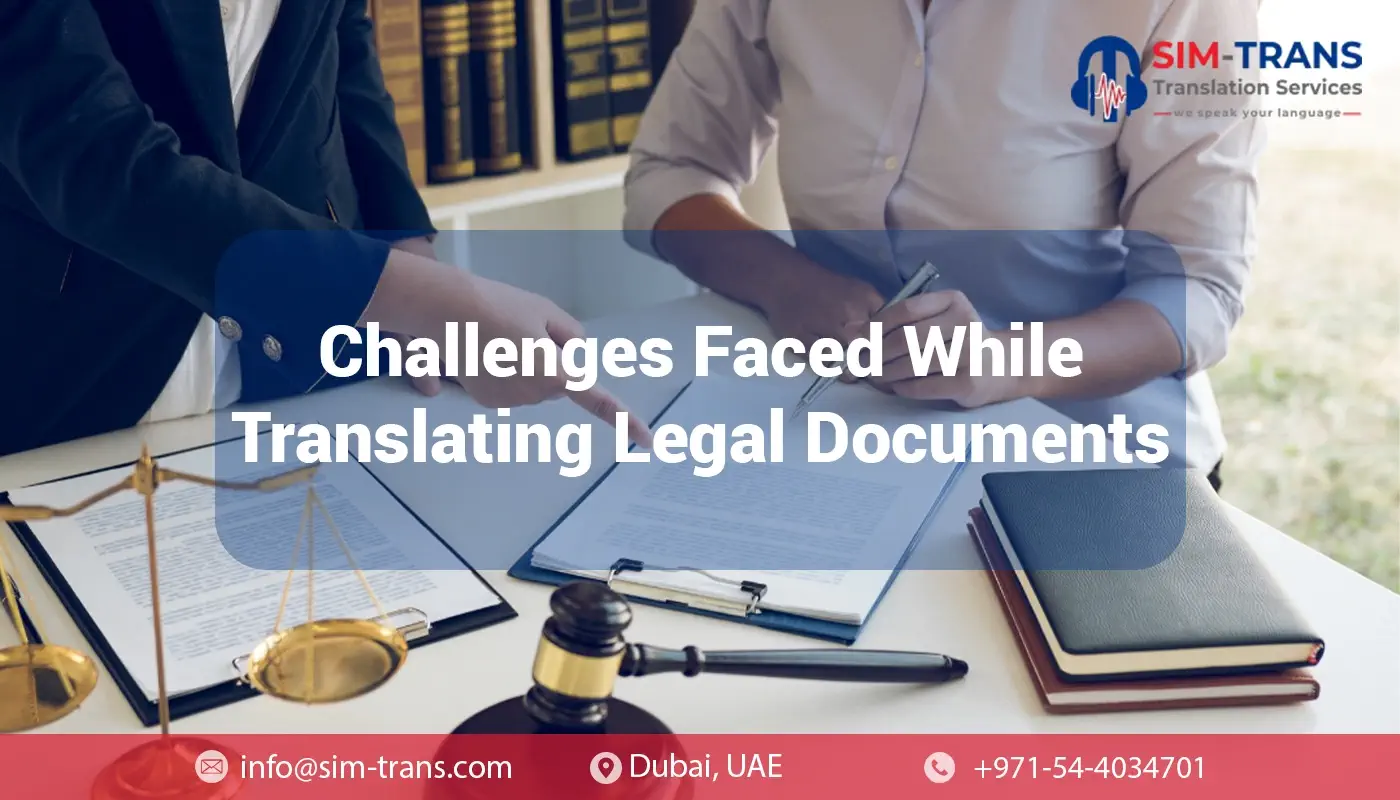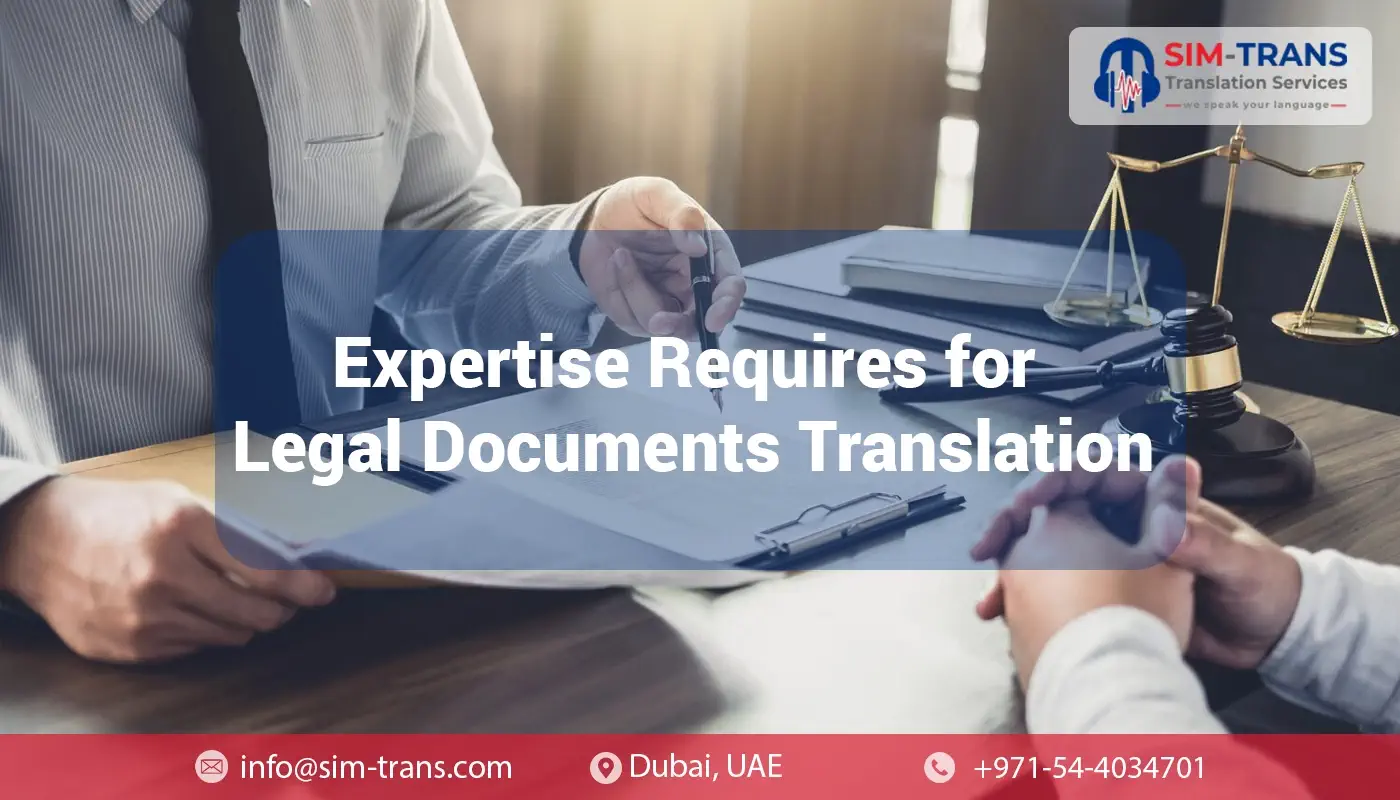Legal documents are often complicated and contain highly technical language, making it important for them to be translated accurately. As a result, translation of legal documents requires a specific set of expertise and attention to detail to ensure accuracy and compliance with the laws of the target language.
In this blog post, we will discuss why legal document translation requires expertise and attention to detail in order to achieve accurate and compliant translations.
Different Types of Legal Documents
When it comes to legal translation Dubai, it is essential to understand the different types of legal documents that require translation. Legal documents are formal statements or arrangements between two or more parties. They are legally binding and require accuracy, attention to detail, and expertise.
Some common types of legal documents include:
- Contracts,
- Deeds,
- Agreements,
- Wills,
- Bills of sale,
- Leases,
- Licenses,
- Mortgages, etc.
1. Contracts:
Contracts are used to formalize transactions such as buying or selling property, hiring employees, or leasing office space. They are legally binding documents that must be translated accurately to avoid any disputes in the future. A certified translation document is required for contracts to ensure the translation is accurate and legally binding.
2. Bill of Lading:
A bill of lading is another type of legal document used in the shipping industry. It is a contract between the shipper and the receiver and is used to ensure the secure delivery of goods. A bill of sale is a written agreement between two parties and serves as evidence of property ownership. It usually includes details such as the sort of possessions being assigned, the purchaser’s title and address, and the date of acquisition.
One of the challenges of legal document translation is dealing with legal jargon. Legal jargon is specialized terminology used in legal documents and can be difficult to translate. Legal translation company in Dubai have experienced translators who understand legal jargon and can translate legal documents accurately.
Another challenge of legal document translation is localization and cultural sensitivity. Legal documents vary from country to country, and it is important to ensure that the translation is culturally sensitive and adapted to the target audience.
The role of technology in legal document translation is also significant. Legal translation company in Dubai use specialized software to ensure consistency and accuracy in legal document translation. Technology also makes it easier to send legal documents electronically via email, fax, or scanned.
The Importance of Accuracy in Translating Legal Documents
Legal translation is a complex and delicate process that requires precision and accuracy. When it comes to legal document translation Dubai, mistakes can be costly and have significant consequences. This is why certified translation document are crucial, as they provide legal certainty and clarity.
It is impossible to overestimate the value of precision in legal translation. It is imperative to ensure that every word, phrase, and sentence is translated precisely, taking into account the nuances and intricacies of the legal language. Even the slightest error or omission can have serious implications for the parties involved, and this is why professional document translation Dubai is essential.
Inaccurate translations can lead to misunderstandings, legal disputes, and even financial loss.
This is particularly valid in situations involving:
- Contracts,
- Patents,
- Intellectual property, and
A simple mistranslation of a key term or concept can have devastating effects and lead to a costly legal battle.
This is why legal translation Dubai must be entrusted to qualified professionals with extensive experience in the field. They understand the legal system, the terminology, and the cultural nuances that are necessary to ensure an accurate and faithful translation.
It is also important to note that certified translation document is typically required for official purposes, such as:
- Immigration,
- Legal proceedings, and
- Business transactions.
These documents must meet strict requirements and adhere to specific formats to be accepted as legal documents.
The Challenges Faced While Translating Legal Documents

Translating legal documents is a complex task that requires a high level of expertise and attention to detail. Legal documents often contain technical terms, jargon, and complex language structures that can be challenging to translate accurately.
1. Use of Technical Language in Translating Legal Documents:
One of the primary challenges in translating legal documents is the use of technical language. Legal documents often contain legal jargon that is unique to the field, and without an understanding of these terms, it is difficult to translate the document accurately. Furthermore, the use of technical terms in legal documents often varies between countries, which means that translations need to be tailored to the local laws and legal systems.
2. Use of Multiple Languages:
Another challenge in translating legal documents is the presence of multiple languages. Many legal documents contain clauses in multiple languages, which can make it difficult to ensure accuracy. This is especially true when dealing with legal terminology that is not directly translatable into the target language. Translators must be aware of the specific legal systems and terminology used in each language and ensure that translations are accurate and consistent across all languages.
3. Complexity:
Legal documents are also often long and complex, containing many clauses, provisions, and conditions. This complexity can make it difficult to translate them accurately while retaining the original meaning. The use of legal jargon, long sentences, and complex structures requires careful consideration to ensure that the translation is clear and accurate.
In addition to the linguistic challenges, legal documents often contain cultural references that can be difficult to interpret in another language. Translators must have an in-depth understanding of the legal and cultural contexts in which the document was written to ensure that translations are accurate and culturally appropriate.
In summary, legal document translation is a challenging task that requires expertise and attention to detail. To ensure accurate translations, it is essential to work with professional translators who are fluent in the languages involved and have expertise in the legal field. Accurate translations are crucial to ensuring that the meaning of the document is not lost in translation and that all parties involved can fully understand its content.
Localization And Cultural Sensitivity
When it comes to translating legal documents, localization and cultural sensitivity are crucial. Legal language and terminology can vary greatly between different countries and even regions within the same country. It is important that the translated document not only accurately conveys the intended meaning, but also takes into account the legal systems, customs, and cultural nuances of the target audience.
For example, certain phrases or idioms may not have the same meaning or relevance in another language. Legal documents may also contain sensitive information or references to culturally specific practices that need to be properly understood and translated. A professional translator with knowledge of both the legal system and cultural context is essential to ensure the accuracy and relevance of the translated document.
Furthermore, localization goes beyond just the language and cultural considerations. Formatting, layout, and even the type of document may differ from country to country. For example, contracts in some countries may require a signature from a notary public, while others do not. The translator must be familiar with these differences to ensure the translated document complies with local regulations and requirements.
Overall, translating legal documents requires not only language proficiency, but also a deep understanding of legal systems and cultural sensitivity. Only a professional translator with expertise in this area can ensure the accuracy and relevance of the translated document.
The Role of Technology
In recent years, technology has become an increasingly important aspect of legal document translation. With the advent of advanced translation software and machine learning algorithms. The task of translating legal documents has become faster, more efficient, and more accurate.
However, while technology has certainly improved the process of legal document translation. It is important to remember that technology alone cannot replace the expertise and attention to detail of a human translator. Even the most advanced machine translation systems are not capable of capturing the nuances and subtleties of legal language and culture.
Instead, technology should be viewed as a tool to assist human translators in their work. For example, translation memory software can be used to store and retrieve translations of commonly used legal terms and phrases. Thereby reducing the time and effort required to translate similar documents in the future.
Similarly, machine translation can be used as a starting point for human translation, providing a rough draft that can be refined and polished by a skilled translator. However, it is important to remember that machine translation is not always accurate, and human oversight is necessary to ensure the final document is of high quality.
Our Popular Links
English to Arabic Translation Dubai
Translate Document from Arabic to English Dubai
Translate German to Arabic Dubai
Documents Attestation Services Dubai
Certified Translator in Dubai for Canada Immigration
Visa Typing Center Dubai
Driving License Translation Near You Dubai
Translate Medical Report from English to Arabic Dubai
Medical Content Translation in Dubai
Website Content Translation in Dubai
Consecutive Interpretation Services in Dubai


